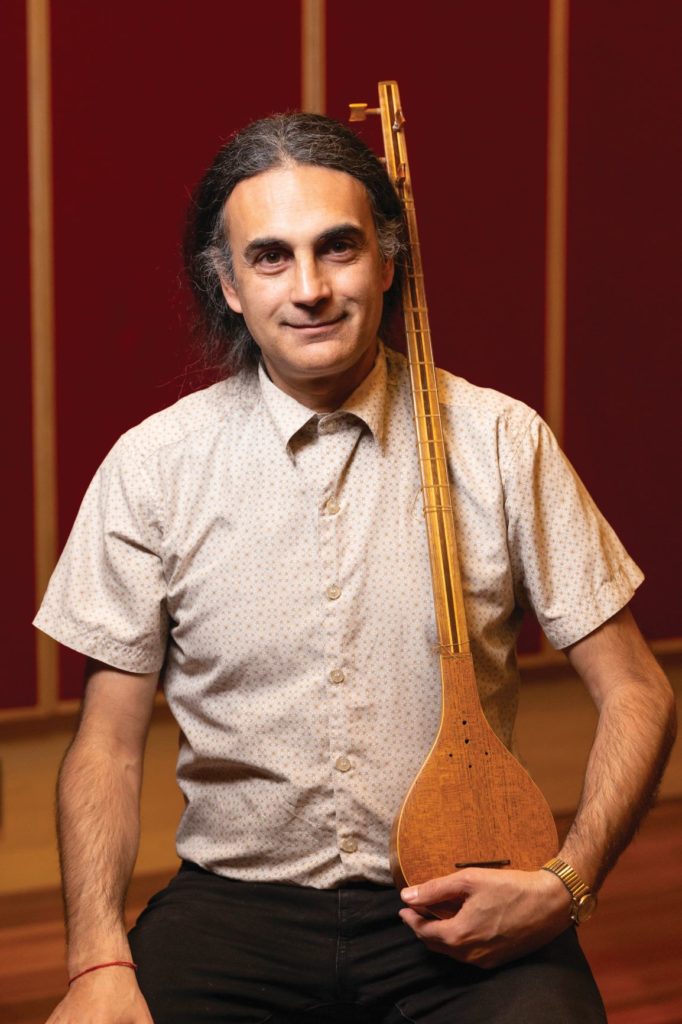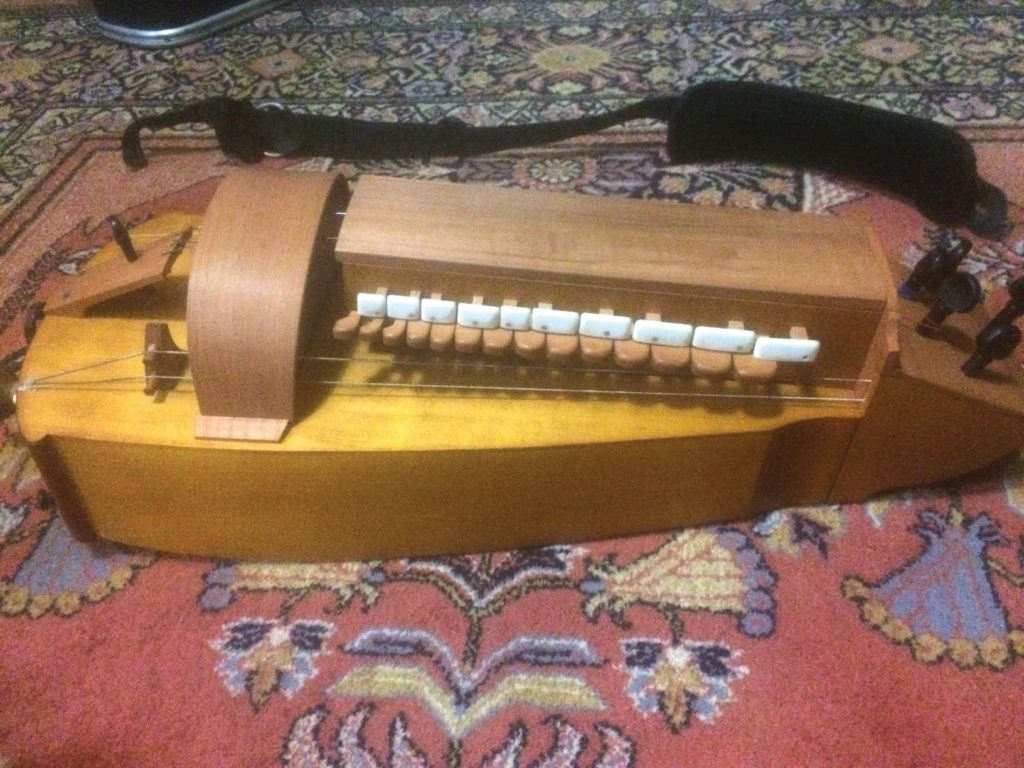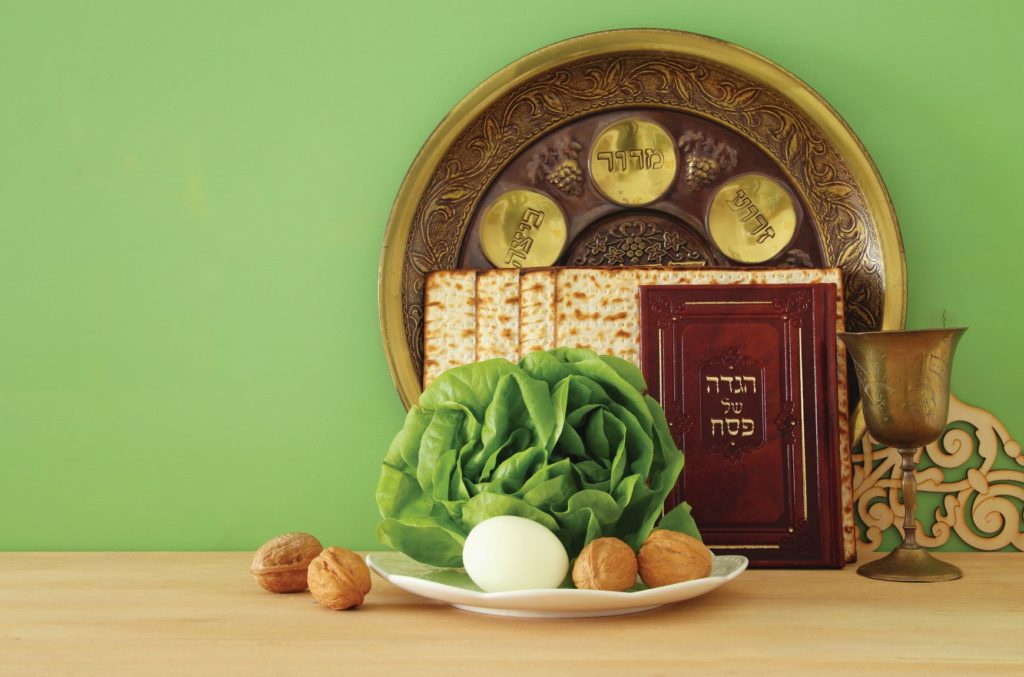
My name is Kim Cunio and I have the joy to be the custodian of our beloved ANU School of Music, a place that has had more than its fair share of strife, that happily is finding its feet again and becoming a home for music making and training our next generation of musicians, as it should be. I am completely music obsessed, so a lot of my favourite things have something to do with music, though I am also quite obsessed with India, where I spend a lot of time. Although I compose when I am free, the other things that have meaning to me are those which really support my life – my practice of meditation and yoga, my love of cooking (and eating!), and my love of the outdoors.
My harmonium
I first encountered this instrument on top of a bus in Rajasthan, India in 1989, and as soon as I could, I bought one. These reed organs are derived from medieval Portuguese organs that were taken to India hundreds of years ago and re-engineered to be able to play both Eastern and Western music.

My hurdy-gurdy
It sounds like the Swedish chef, but this instrument is so much fun to play; it is part keyboard part violin and part proto electric guitar and is almost a thousand years old (well not my one!). It takes a lot of force to play so it has a strap that is almost like a seat belt.
Music manuscripts
Even though we can do it all with computers now, pencil and manuscript is still arguably the best way to compose. When I see blank manuscript I see a world of possibilities. Writing music is possibly the most mysterious and wonderful process I have ever entered into.

My great grandfather’s Haggadah
A prayer book telling the story of the Jewish Passover. Dad’s grandfather Hacham Eliyahu Ben Yitzhak was a Kabbala master and Rabbi who moved from Baghdad to China, where Dad was born. I never knew him, but he made my father the most gentle and spiritually minded man I ever met.
William Buck’s reimagining of the Mahabharata
Buck wrote a marvellously poetic and beautiful version of this master epic and died soon after. It is easy to read and gives such an insight into the cultural depth that is in India.







